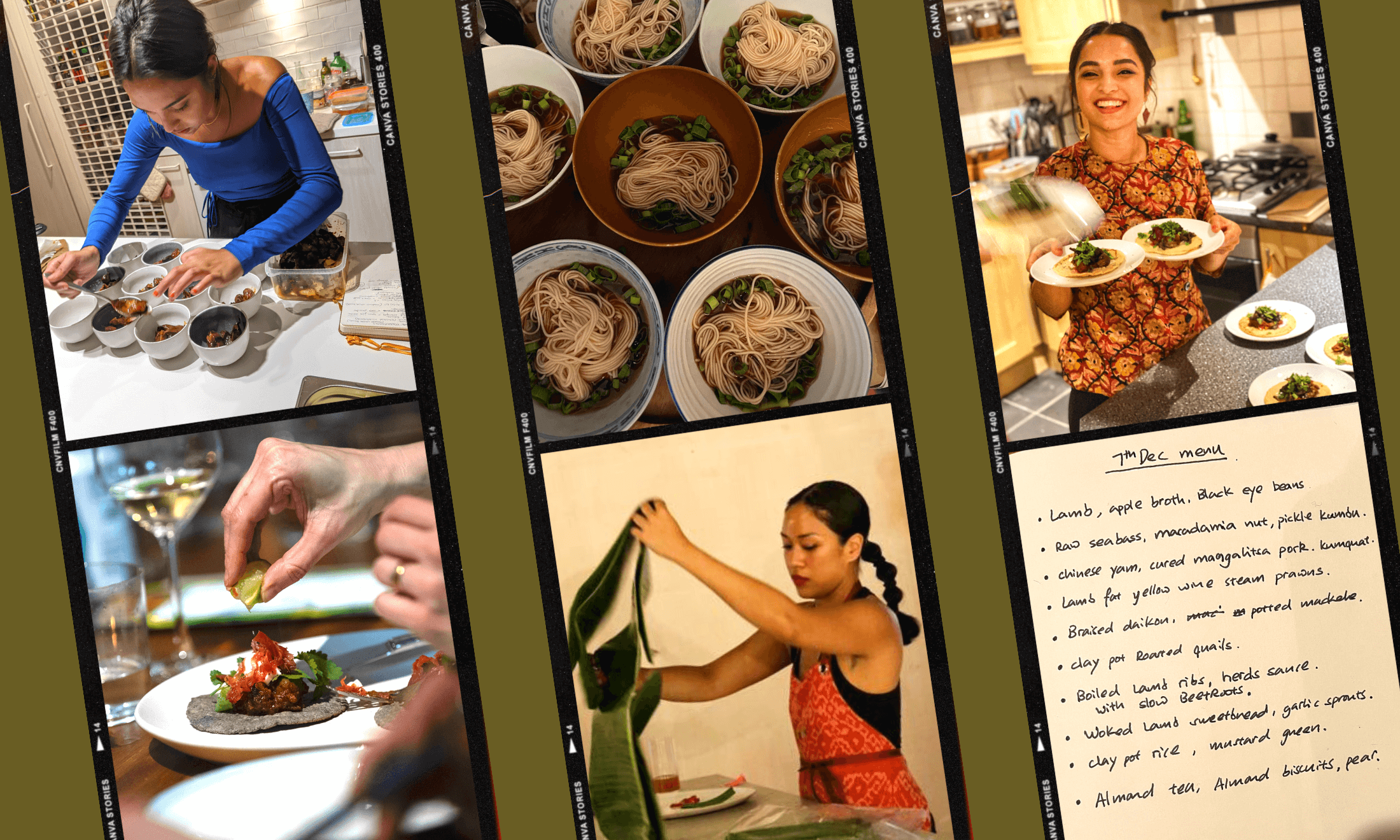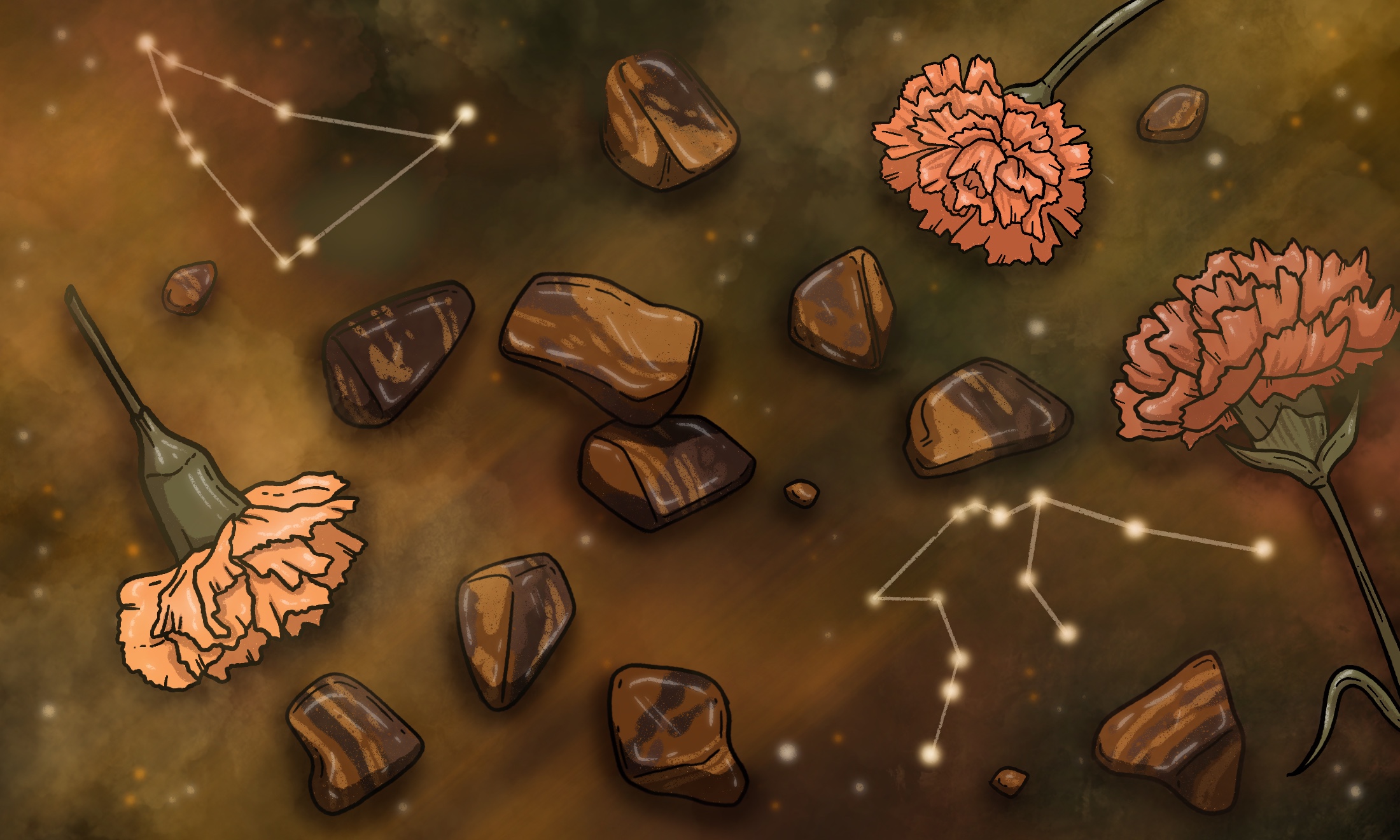
#SELFCARESUNDAYS: How to survive and thrive on a postgraduate degree as a black woman
Jenessa Williams
26 May 2019
Illustration by Maia Magoga
My greatest goal in life is to write a book. The chip on my shoulder about proving that even the most lowbrow of popular culture deserves critical record and analysis is less of an individual fry, and more a greasy bagful topped with serious salt. With that in mind, and after a short break in the “real” world, I knew that postgraduate study was for me. I know that because of intersectional factors, making that choice isn’t easy for everyone.
I am due in the coming months to finish my Master’s degree in media, communication and cultural studies, before embarking on a PhD. But knowing that this is my chosen path doesn’t answer all the questions; namely, how to perform my best work in a system that is institutionally racist, where black academic staff at Russell Group institutions make up only 1%, and non-white groups only 14.4% overall, with evidence for substantial wage gaps.
Due to my race, age and topics of interest, I have often found myself dismissed as nothing more than a fangirl or a lightweight hobby scholar. My research areas incorporate popular music, ethnicity and millennial culture, but it has been assumed that my ethnicity marks me out as having a bias, and white, male supervisors have struggled to recognise the importance of black feminist literature in my work. It is only through staying true to my aims that I finally feel as if I am finding my place in postgraduate education. With this being the time of year where courses are ending and applications are opening, here’s how you can too:
Finding your people
Right from my A-Level extended project all the way up to my PhD applications, I have learnt that your studies deserve a sympathetic supervisor. The adage that your chosen supervisor is more important than the institution itself is a true one; this is the person who will have your back, help direct your project and be your main source of university contact.
I have been lucky enough to be supported at Masters level by an Asian hip-hop scholar with a keen understanding of my aims, and will be embarking on my PhD with co-supervision from two women scholars. Only one of them is a woman of colour, but both are well aware of the need to fight for the legitimacy of feminist media academia. Knowing I have a team behind me who understand where I’m coming from played a huge part in my application decisions, which is worth just as much as their subject knowledge. Before applying for a postgrad, don’t be afraid to take a keen look at an institution’s staff, and ask for meetings with anyone who may look suitable – it’s all part of the process of finding the perfect match.
Postgraduate study is in its nature a fairly solitary experience, and when you’re doing a Masters by Research instead of a taught class, the chance of making friends on campus can often be quite slim. Twitter, in this instance, has been my saving grace – I’ve gained advice from black, women scholars, connected with those with similar research interests and even found conferences to attend that I never would have heard of otherwise. Never underestimate the power of the internet.
Okay ladies, now let’s get information
I never need an excuse to buy new stationery, so I was more than prepared for postgrad life when it came to notebooks, highlighters and sticky tabs. However, I’ve learnt the hard way that notetaking is so much more than just scribbling down key quotes – always put in time to evaluate your notes after a lecture or important conversation, and add those “notes to self” right there and then – chances are by the time you get back to your keyboard, you’ll have forgotten that excellent point that you were determined to make.
Getting information is more than the facts and figures required for your degree – it’s about knowing where to look for the resources that’ll help you along your way. BAME scholarships and grants may feel like a bit of a token act, but if you’re eligible and they help pay the bills, apply for anything and everything that you’re entitled to – somebody has to! Speak to your supervisors about teaching hours (opportunities to guest lecture undergraduates), follow likely places to find opportunities on social media (particularly on #phdchat, or @leadingroutes), and integrate with your student union for diversity representation, mental health support and more. The SCONUL access scheme is also a great way to visit other institutions and utilise their facilities – simply search online to find participating schools.
Creating a balance
Imposter syndrome is real. Pretending that it’ll never happen to you is like expecting Beyoncé to dump Jay-Z, but it is important to recognise the need for balance. Being a black woman in a white world is exhausting, especially when you’re working twice as hard to achieve the same result. When your self-worth gets tied up in how many words you’ve gotten down that day, or how many books you’ve read that week, it’s time to step away. For me, doing my Masters part-time was an absolute blessing – it lessened the emotional and financial burden by allowing me time to earn money and to have space to let my ideas breathe. Repeat after me: your career does not define who you are. Taking time to see friends, read a non-academic book (or y’know, sleep), isn’t a sin, and doesn’t make you any less worthy of a graduation cap than anybody else. If you’re struggling to find a balance, start logging your tasks and hours spent working in a diary – you’ll soon be surprised just how much everything adds up.
While it has been a struggle at times, postgraduate education has brought real meaning to my life. If I can do it, so can you – the only way those statistics change is by people like us taking up the intellectual space we are worthy of. Whether you’re an astrophysicist or an art historian, these institutions need us, ready or not.









